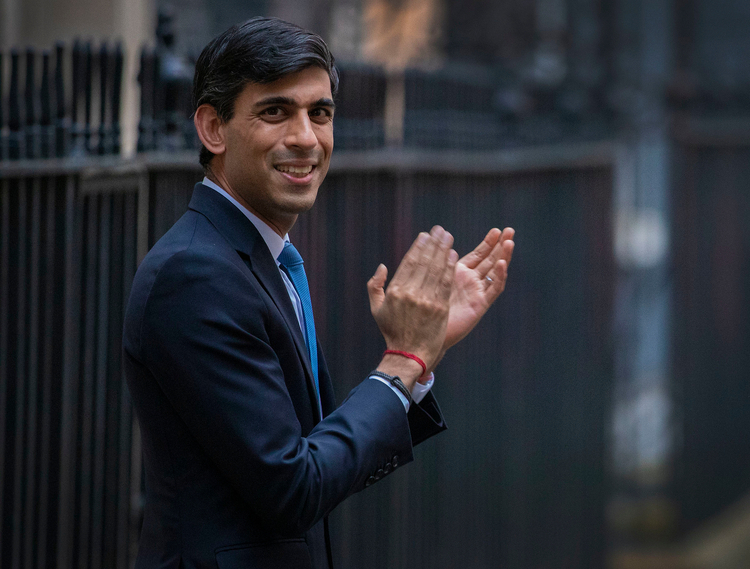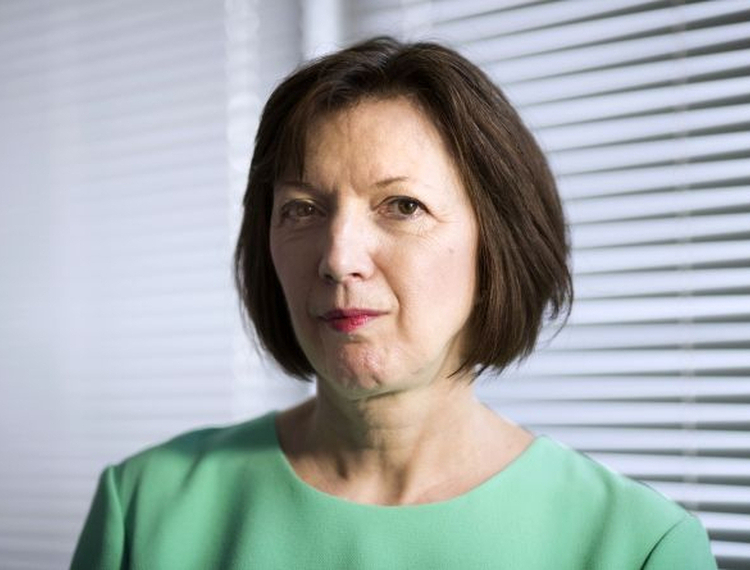Delivering on the Conservatives manifesto to raise teacher starting salaries to £30,000

4th Mar 2022: Today (4 Mar), the Department for Education published its evidence to the independent pay review body for teacher pay.
This includes proposals for teacher pay in 2022 and 2023, which will deliver on the Conservatives general election manifesto commitment to raise teacher starting salaries to £30,000.
As it stands, teachers in schools are currently paid over £9,000 more than college lectures on average, despite many college lecturers being highly specialist, having brought dual professionalism to their roles.
This has contributed to the worst staffing crisis in two decades in England’s colleges. Association of Colleges is pushing for government to work with the sector so that colleges can also pay their staff better and support them with their development.
Whilst proposals include large rises in school teacher’s starting salaries (16% between 2021 and 2023), the proposed increases for more experienced teachers are much lower (3% in 2022 and 2% 2023). This equates to an average award across all teachers of just under 4% in 2022.
With inflation rapidly rising, the government’s proposals for teacher pay in 2022 and 2023 would be forecast to deliver a 5% real-terms cut in salaries for more experienced teachers between 2021 and 2023.
If I have one message for this government at the start of 2022, it is this: Britain needs a pay rise

30th Dec 2021: In her New Year message, published today (30 Dec), TUC General Secretary Frances O’Grady has issued a direct challenge to the government to “give Britain a pay rise”.
The challenge comes as new TUC analysis reveals that real wages are barely set to grow over the next five years.
The analysis shows that real wages are set to rise, on average, by just 0.6 per cent (£150) a year between now and 2026.
By contrast, the TUC estimates that getting real pay growth back to pre- financial crisis levels (+1.9 per cent a year) would leave workers £500 better off a year, and £2,500 better off by 2026.
Highlighting the cost-of-living storm facing working families in 2022, Frances O’Grady warns:
“If I have one message for this government at the start of 2022, it is this: Britain needs a pay rise.
“Families are bracing themselves for a cost-of-living storm in 2022. Bills are rising – fuel bills fastest of all. Millions of working households have been hit by the cut to universal credit – and will be hit next year by the hike to national insurance.
“Our economy will only recover when working people can afford to spend in local shops and businesses. That’s the way to boost demand, grow the economy and protect jobs.”
Highlighting the damage caused by years of wage stagnation, O’Grady says:
“This Conservative government has had eleven years to get wages rising. And they have failed, over and over again.
“We are still in the longest period of pay stagnation since the Napoleonic wars. Real wages for millions are less than they were before the bankers’ crisis in 2008.
“And unless ministers act now, the future looks bleak. Real wages are set to barely move between now and 2026. They will go up by a miserable £760 in total – about £150 a year.
“So, in 2022, we need a long-term economic plan to get wages rising across the economy. If we could get real wage growth to mirror the average growth in the ten years before the bankers’ crisis, real wages would grow by £500 per year – leaving workers £2500 per year better off by 2026.
“If this Conservative government had achieved that over the past lost decade, workers would be around £8,000 better off today in real terms.”
Stressing the need for ministers to work with unions, O’Grady says:
“The best way to get wages rising is to give workers the power to bargain for better pay from their employers.
“Ministers should get round the table with unions and employers to hammer out sector-wide fair pay agreements – and every employer should be bound by them.
“Take social care – where more than three in five are still paid less than £10 per hour. Let’s make every social care employer in the country sit down and negotiate fair wages with unions representing social care workers. And let’s make every employer in that sector pay the wage negotiated. That’s how we keep dedicated people working in social care – and reward them fairly.
“Fair pay agreements work all over the world. And they could work here too. They are a sensible, modern solution to the problems of staff shortages, low skills, and low pay. And they will stop a race to the bottom on pay and conditions.”
Issuing a direct challenge to the Prime Minister, O’Grady says:
“The government can’t sit this wages crisis out. The pandemic showed us that our society keeps functioning because of the dedication of ordinary women and men, going to work day in day out.
“After decades of real wage cuts and falling living standards, no one can seriously say working people don’t deserve a pay rise.
“That’s my priority, and the priority of the whole union movement, in 2022. The prime minister should shape up and make it his priority too.”
Teachers are set to see their pay rise next year as public sector pay pause lifted

26th Oct 2021: MILLIONS of nurses, teachers and members of the armed forces are set to see their pay rise next year, the Chancellor announced at the Autumn Budget and Spending Review (27th Oct).
Rishi Sunak will announce and end to the one-year pay pause due to the solid economic recovery and encouraging signs in the labour market.
The temporary pause was announced for the majority of public sector workers in November last year due to the huge uncertainty the unprecedented impact Covid had on the economy – helping protect jobs at a time of crisis.

Chancellor of the Exchequer, Rishi Sunak said;
“The economic impact and uncertainty of the virus meant we had to take the difficult decision to pause public sector pay.
“Along with our Plan for Jobs, this action helped us protect livelihoods at the height of the pandemic.
“And now, with the economy firmly back on track, it’s right that nurses, teachers and all the other public sector workers who played their part during the pandemic see their wages rise.”
The temporary pause, which helped protect jobs at a time of crisis during the pandemic, also ensured the gap between public and private sector pay did not widen further.
Public sector average weekly earnings rose by 4.5% in 2020/21 whilst private sector wage increases were a third lower than they were pre-crisis, at only 1.8%.
Despite the one-year break, most public sector workers will still see their earnings rise, their average weekly earnings have increased by an average of 3% since April.
How much of a pay rise public sector workers receive depends on the recommendations from the independent Pay Review Bodies, who set the pay for most frontline workforces – including nurses, police officers, prison officers and teachers.
The government will be running a full pay round and the awards will be announced next year once government responds to the pay review bodies’ recommendations.
The news comes as it was confirmed earlier today that the UK’s lowest-paid workers will receive a pay rise next year as the National Living Wage increases from £8.91 to £9.50 an hour – an extra £1000 a year for a full-time worker.
From 1 April, young people and apprentices will also see their wages boosted as the National Minimum Wage for people aged 21-22 goes up to £9.18 an hour and Apprentice Rate increases to £4.81 an hour.
This builds on the government’s continued action to support people with the cost of living including through the £500 million Household Support Fund, Energy Price Cap, Seasonal Cold Weather Payments and Warm Homes Discount, and keeps the government on track to meet its target to end low pay by 2024-25.
Sector Response

Commenting on the Chancellor’s intention to end the one-year pay pause in his Spending Review this week, Kevin Courtney, Joint General Secretary of the National Education Union, said:
“This is big on promises but short on detail. Teachers, support staff and school and college leaders will not have a clear sense this week of what is in store, and there is no prospect of clarity until 2022. The Chancellor must do more than win a day’s headlines. He must make good on this latest pledge to drive up pay for those who kept this country on its feet throughout the pandemic.
“This morning the NASUWT and NEU together wrote to the Education Secretary calling on the next report of the School Teachers Review Body to be truly independent. The last round was hindered when the Chancellor put out of bounds any consideration by the STRB of a pay increase, regardless of the evidence in favour of one. And that evidence is mounting. Over the past decade teacher pay has fallen in real terms, and this Government has failed utterly to stem the tide of recently qualified teachers leaving the profession in their first five years, an exodus which can only serve to damage the education system.
“There is no mention in this announcement of the £30,000 starting salaries that were also put on pause. We can see no reason for this to be delayed, and trust that Rishi Sunak will deliver it this Wednesday. Even so, we need a bigger fix if we are to truly value education and value educators. Government must deliver a vision of how to build up a new generation of education professionals, which addresses not just pay but also workload and job satisfaction. That is why it is so essential that the next review by the STRB is not prevented from reaching a full and truly independent verdict. We call on Rishi Sunak to give the STRB its head, and to follow its recommendations.
“The fear remains that this will have to be funded from existing budgets. Exhausted and undervalued teachers deserve far better than to be paid with petty cash, or worse, at the expense of other valuable services. If this week’s announcement is to be taken seriously, he should confirm now that the Treasury will fund schools to meet the pay rise that the STRB recommends.
“The last time Rishi Sunak addressed public sector pay, his decisions were not equal. Key workers have worked hard throughout the pandemic but for education staff this will feel like a particularly long road to recognition. The Chancellor cannot let them down again.”

Paul Whiteman, general secretary of school leaders’ union NAHT, said:
“It is right that the government are abandoning their damaging public sector pay freeze. Teachers, along with nurses and other public sector workers, deserve a pay rise. Given predictions of at least 4% inflation within the next year, a pay freeze was simply an unsustainable position to maintain.
“It remains to be announced how much school staff might receive. It needs to be enough to begin to make up for the losses seen over the past decade. We have seen real terms pay cuts for teachers of up to 8%. This is contrast to 7.5% real terms growth in economy wide average earnings.
“The crucial detail now is whether or not the government will be giving schools the money to pay for the extra salaries. If schools have to cut elsewhere in their budgets to find the extra money they will be faced with heart breaking decisions.
“The Treasury should announce enough money for schools to properly pay their staff and give children the very best education. It shouldn’t be a choice.
“All teachers and leaders need a rise. If only teachers at the start of their careers see an increase it will only entrench the recruitment and retention issues for more experienced teachers and leaders. We need experienced teachers to step up to senior leadership and to help lead recovery for children and young people.
“The government has repeatedly constrained and ignored the School Teachers’ Review Body – this must end. The STRB must be able to do its work, free from government interference. The STRB understand the teaching workforce supply issues and once again this year asked government to allow it to review the pay structure for teachers and leaders, but was denied.
“We urgently need government to take the STRB’s warnings seriously and to act on them, to support the retention of experienced teachers and leaders, and to resolve the leadership supply crisis.”

Dr Patrick Roach, General Secretary of the NASUWT – The Teachers’ Union, said:
“We welcome the overdue announcement of the Chancellor’s intention to end his government’s pay freeze on teachers’ salaries next year, but we cannot overlook that this is a pay freeze that should not have been inflicted in the first place.
“For the last 19 months, teachers have been serving on the front line, risking their health to maintain education and support for the country’s children and young people. The government should have rewarded teachers for their efforts, but instead they froze their pay and exacerbated the crisis of low morale, recruitment, and retention.
“To add insult to injury, the Treasury attempts to justify this decision with the tenuous claim that a pay freeze for teachers was necessary to maintain “fairness”. The reality is that teachers have already faced a 17% erosion to their pay over the last decade under the Treasury’s own watch.
“For those who have already been pushed out of the profession by stifled pay and rising costs of living, this announcement will have come too little and far too late. To prevent further damage, teachers’ pay must be increased to finally reflect the true value of the highly qualified and experienced professionals within the education sector.”











Responses